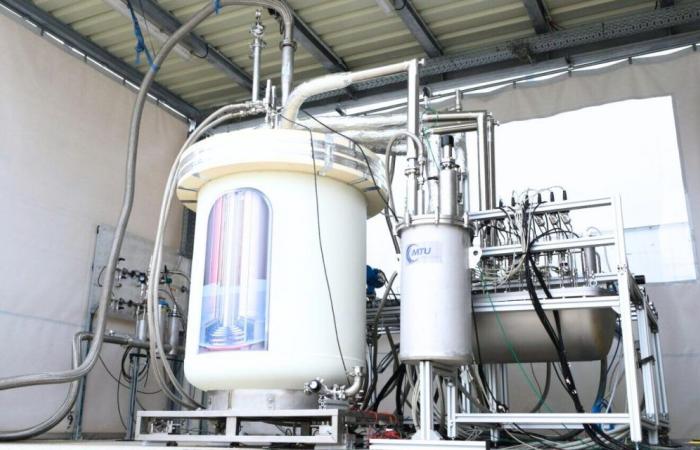
The liquid hydrogen revolution: a giant step towards an emissions-free sky
Recent testing of MTU Aero Engines’ liquid hydrogen-powered aircraft engines marked a turning point in the quest for zero-emission flight. This advancement could redefine the future of aviation.
Also read:
A major innovation in aviation
MTU Aero Enginesin collaboration with MT Aerospace AG, is developing a pioneering technology: liquid hydrogen systems for aircraft. This system includes tanks, sensors, heat exchangers, valves, safety systems and controls. First announced in June 2023, this project has just reached a crucial milestone with positive test results, paving the way for cleaner aviation. This project illustrates the aviation industry’s continued commitment to energy solutions sustainable and efficient, with transformative potential for future generations.
The challenge of hydrogen storage
Hydrogen management in liquid form is complex due to its need to be stored at extremely low temperatures, around -250°C. This challenge was taken up by MT Aerospace which designed a tank of liquid hydrogeninitially tested with liquid nitrogen for its ease of use. Subsequent testing with liquid hydrogen validated the functionality of these systems. Mastering this technology could revolutionize not only aviation but also other industries requiring high-density energy storage solutions.
Efficiency and safety of the tested system
The liquid hydrogen system tested proved it could heat refrigerated hydrogen and convert it into gas, which is needed to power the aircraft’s fuel cells. Testing confirms that the system architecture is secure, reliable and performs as expected, ensuring regulated supply adapted to the needs of hydrogen preconditioned to the fuel cell. These advances position MTU Aero Engines at the forefront of clean technologies, reinforcing its leading role in aeronautical innovation.
Benefits of Liquid Hydrogen
Liquid hydrogen offers higher energy density compared to batteries, making it potentially viable for longer regional flights than batteries could support. This characteristic positions it as a ideal candidate for carbon-free flights. Its use could therefore not only reduce the carbon footprint of aviation but also increase the range and performance of aircraft.
Next steps towards commercialization
German aviation experts plan to test a complete product-specific FFC system in 2026. The positive results of the current liquid hydrogen system tests will play a key role in these future developments. This marks a significant step towards the realization of hydrogen-powered commercial aircraft, which could revolutionize air travel.
The impact of MTU in aviation
MTU is not a newcomer to the industry; approximately 30% of active commercial aircraft worldwide have MTU components. This consolidated expertise and reputation positions MTU as a trusted partner in the evolution of hydrogen aviation technology. MTU’s extensive experience in propulsion and energy systems provides a solid foundation for exploring new frontiers in sustainable aviation material.
The American auto industry faces the greatest peril in its history with this unprecedented wave of low-cost Chinese cars.
This article explores MTU Aero Engines’ recent advances in the development of liquid hydrogen systems for aviation, highlighting the challenges, innovative solutions and future implications of this technology for emissions-free skies. These efforts illustrate the potential of liquid hydrogen not only to reduce the environmental impact of aviation but also to serve as a model for other sectors seeking to decarbonize their operations.
Source: MTU Press Release




